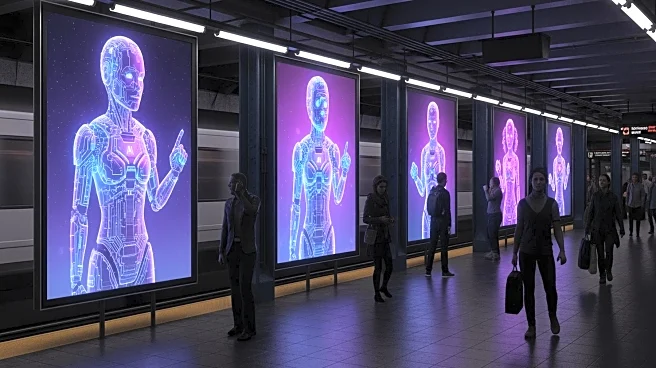What's Happening?
A recent advertising campaign for 'Friend,' a wearable AI pendant designed to act as a digital companion, has been met with strong reactions in New York City. The campaign, which features posters throughout the subway system, describes the pendant as a device
that listens, responds, and supports users. However, the advertisements have been defaced by commuters, with graffiti altering the message to read 'AI is not your friend.' This reaction highlights a growing debate over the role of AI in personal relationships and its acceptance in public spaces.
Why It's Important?
The controversy surrounding the 'Friend' AI pendant campaign underscores the broader societal debate about the integration of AI into daily life. As AI technology becomes more prevalent, questions about its impact on human relationships and privacy are increasingly significant. The defacement of the ads suggests a resistance to the idea of AI replacing human interaction, reflecting concerns about the ethical implications of AI companions. This debate is crucial as it influences public perception and acceptance of AI technologies, potentially affecting future innovations and market strategies.
What's Next?
The intense reactions to the 'Friend' campaign may prompt further discussions among stakeholders, including tech companies, policymakers, and the public, about the ethical use of AI in personal devices. Companies may need to address public concerns through transparent communication and ethical guidelines. Additionally, this situation could lead to increased scrutiny and regulation of AI technologies, particularly those designed for personal use. The ongoing dialogue may shape future advertising strategies and product development in the AI sector.
Beyond the Headlines
The defacement of the 'Friend' advertisements raises questions about the cultural acceptance of AI as a companion. It highlights a potential generational divide in attitudes towards technology, with younger individuals possibly more open to AI integration than older generations. This cultural aspect could influence how AI products are marketed and developed, emphasizing the need for sensitivity to diverse perspectives and values.
















